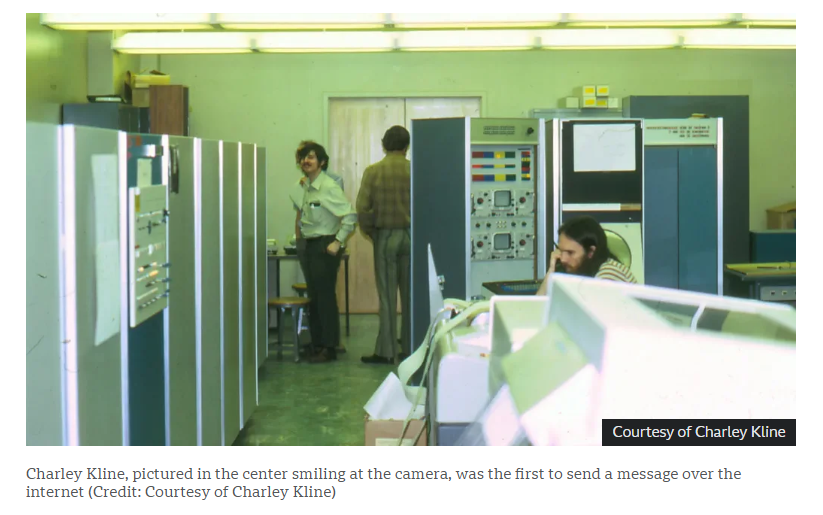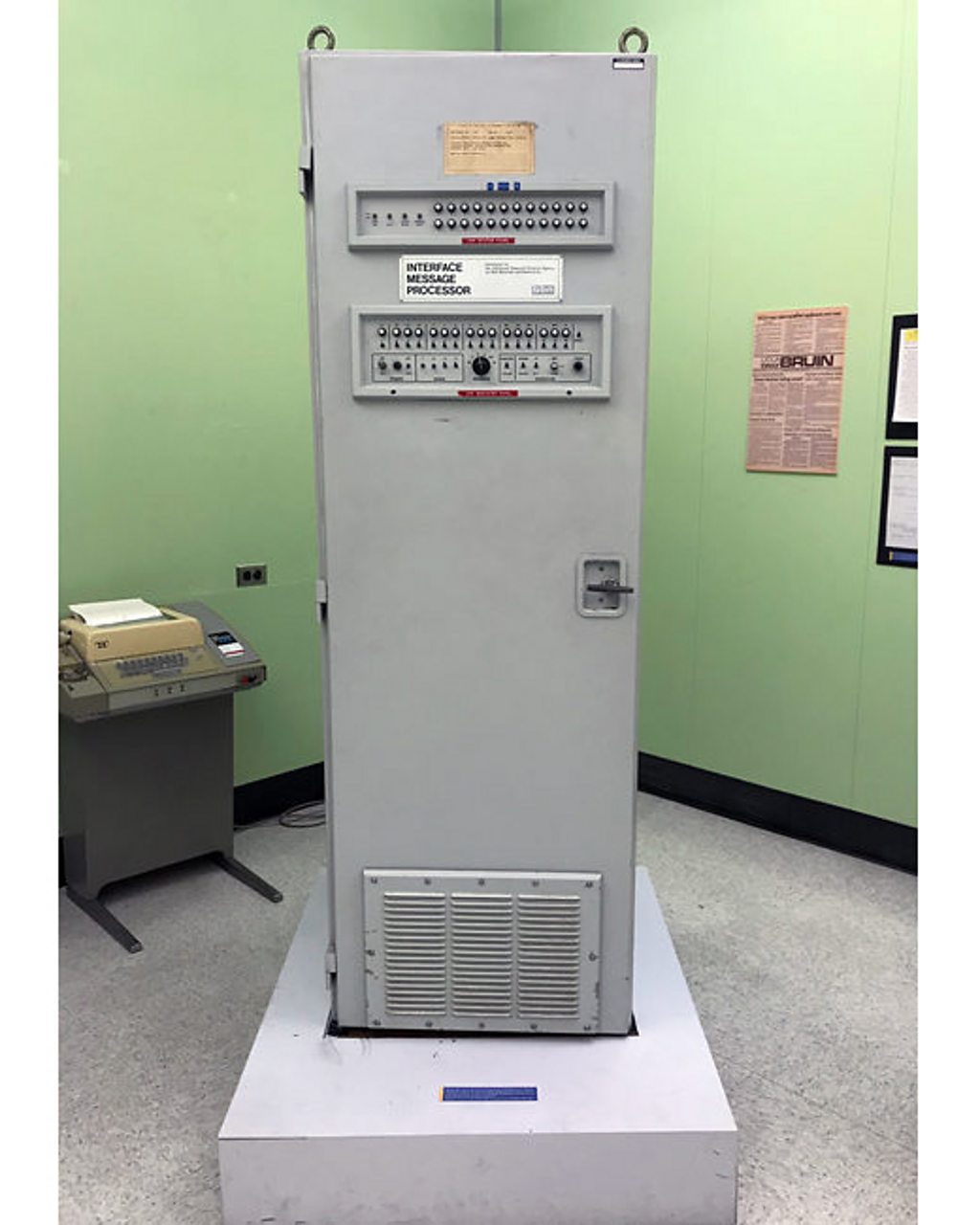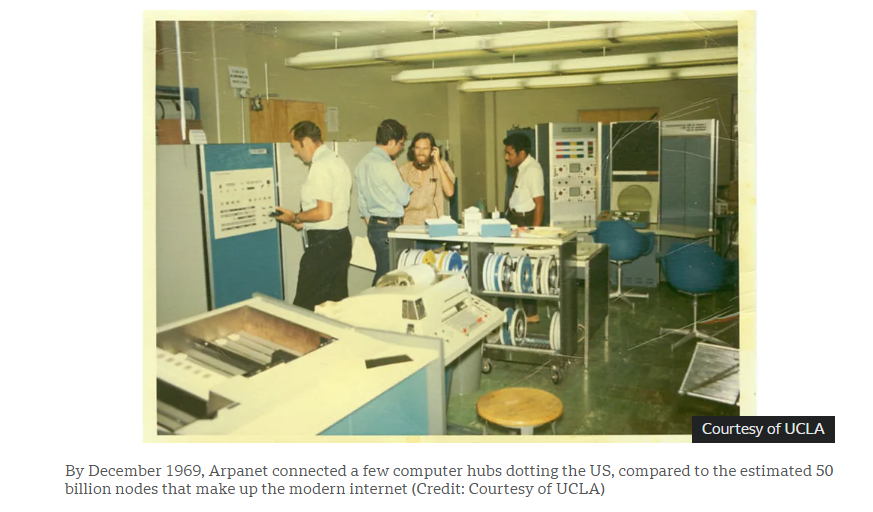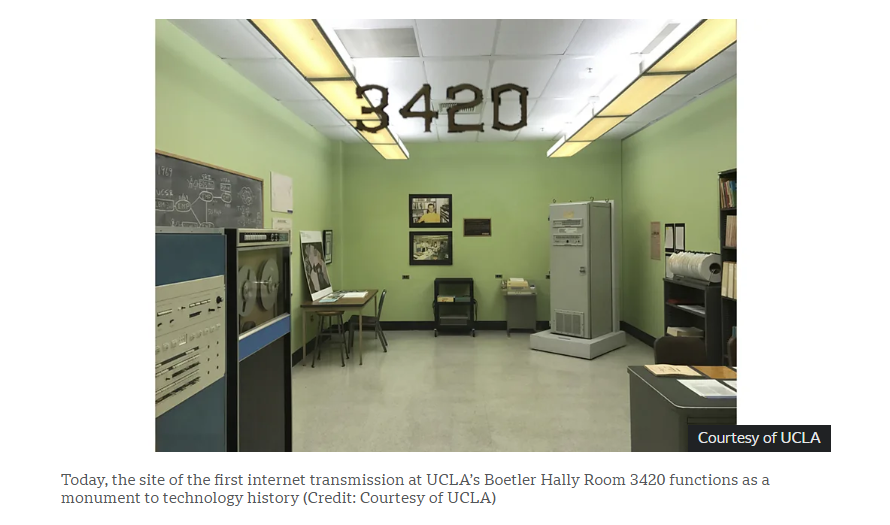
First ARPANET IMP log: the first message ever sent via the ARPANET, 10:30 pm PST on 29 October 1969 (6:30 UTC on 30 October 1969). This IMP Log excerpt, kept at UCLA, describes setting up a message transmission from the UCLA SDS Sigma 7 Host computer to the SRI SDS 940 Host computer
At the height of the Cold War, Charley Kline and Bill Duvall were two bright-eyed engineers on the front lines of one of technology's most ambitious experiments. Kline, a 21-year-old graduate student at the University of California, Los Angeles (UCLA), and Duvall, a 29-year-old systems programmer at Stanford Research Institute (SRI), were working on a system called Arpanet, short for the Advanced Research Projects Agency Network. Funded by the US Department of Defense, the project aimed to create a network that could directly share data without relying on telephone lines. Instead, this system used a method of data delivery called "packet switching" that would later form the basis for the modern internet.
It was the first test of a technology that would change almost every facet of human life. But before it could work, you had to log in. Kline sat at his keyboard between the lime-green walls of UCLA's Boelter Hall Room 3420, prepared to connect with Duvall, who was working a computer halfway across the state of California. But Kline didn't even make it all the way through the word "L-O-G-I-N" before Duvall told him over the phone that his system crashed. Thanks to that error, the first "message" that Kline sent Duvall on that autumn day in 1969 was simply the letters "L-O".

They got their connection up and running about an hour later after some tweaks, and that initial crash was just a blip in an otherwise monumental achievement. But neither man realised the significance of the moment. "I certainly didn't at that time," Kline says. "We were just trying to get it to work."
The BBC spoke to Kline and Duvall for the 55th anniversary of the occasion. Half a century later, the internet has shrunk the whole world down to a small black box that fits in your pocket, one that dominates our attention and touches the furthest reaches of lived experience. But it all started with two men, experiencing just how frustrating it is when you can't get online for the very first time.
snip
 The Interface Message Processor (IMP) functioned as the internet’s first router (Credit: UCLA)
The Interface Message Processor (IMP) functioned as the internet’s first router (Credit: UCLA)


 = new reply since forum marked as read
= new reply since forum marked as read




